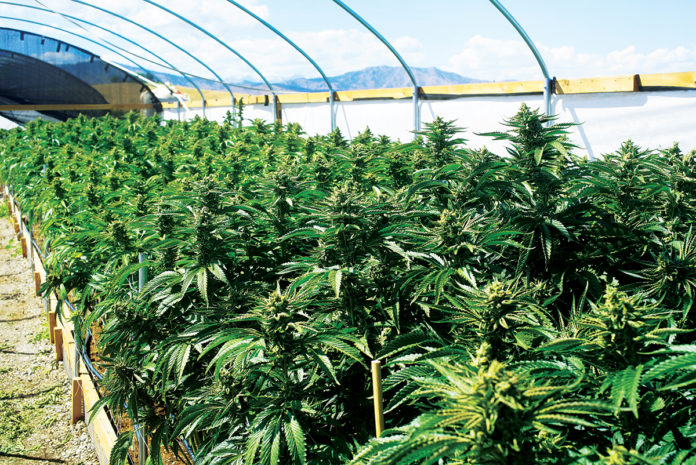A new post-secondary program at B.C.’s Kwantlen Polytechnic University prepares students for the green rush.
Your university years are a time of exploration. They’re a time to study the classics, a foreign language, or the nature of the universe.
But marijuana? Well, that may not be a pipe dream anymore.
Kwantlen Polytechnic University (KPU) is now offering a program titled the Cannabis Professional Series, which aims to prepare students to work in Canada’s budding marijuana industry. With legalization on the horizon, the university expects to see a sharp increase in the industry’s demand for skilled workers. And students see it, too: in early 2017, over 500 eager botanists, marketers and businesspeople enrolled in the program.
David Purcell, director of emerging business at KPU, says the university wanted to be the first in Canada to introduce formal courses to industry professionals when the program was conceived almost three years ago.
“We recognized very early on that this was going to be an important sector in our country,” explains Purcell. “With the legalization of medical cannabis at the time, we recognized the need for education and workforce training for the industry.”
The Canadian government is expected to announce the new federal regulations around recreational cannabis use in mid-2018, but it will be largely up to the provinces to decide who can sell and buy it. Most have put forward frameworks for legalization that will restrict cannabis sales to government-owned entities or licensed private retailers. What that means is that prospective workers will need to abide by and be trained under Health Canada’s regulations if they want to be a part of this blossoming industry.
Kwantlen’s Cannabis Professional Series equips students with the knowledge and skills to be able to grow and sell medicinal marijuana. Participants also learn about issues related to legalities and regulations, medical conditions that may be alleviated by cannabis use, and specific marketing and sales skills.

The Cannabis Professional Series offers three eight-week courses covering different aspects of the industry. “We often see students taking two out of the three courses, depending on what their interests are,” Purcell says.
The first, Plant Production and Facility Management, instructs students on the key
differences in plant characteristics as well as various growing methods. Students also dive into the history of government regulations in Canada related to the cannabis industry.
Marketing, Sales and Drug Development is the focus of the second course. In the first module, students learn how to navigate the turbulent waters of Health Canada marketing regulations as they create marketing and branding strategies for marijuana-based products; the second module focuses on the role of health care professionals in the use of medical marijuana as well as the expanding dispensary scene in Vancouver.
To wrap up the program, the Financing a Cannabis Enterprise in Canada course aims to give students the skills to develop a business plan, understand long-term capital management and a high level understanding of the day-to-day operations of a cannabis business.
Purcell is working with educators at the school to develop two new courses, which will focus on retail, sales and cultivation, as well as other workshops, seminars and some in-class programs.
The online course delivery method is flexible and designed to be completed by anyone working full time. Frequently, professionals working in another industry outside cannabis or with cannabis as a peripheral business will enrol in the program. There are no requirements to enrol.
The latest reports have suggested that, in the very near future, the Canadian cannabis industry could be worth $23 billion. Purcell predicts that it could produce “anywhere between 50,000 and 150,000 jobs in Canada.”
With these new cannabis regulations proposing the inclusion of smaller Canadian producers, the demand for professional grade training and education will only increase. While the actual production of cannabis could create jobs for licensed producers, craft growers and engineers, the industry’s other aspects open up opportunities for consultants, marketers, fi nanciers and many others. “As the industry matures, the needs will likely change,” Purcell adds. “It’s growing very, very quickly.”
Graduates of the program leave with a good understanding of the regulations and requirements that govern the cannabis industry so that they can work within it safely and
effectively. “Our courses offer the foundational piece needed to provide learners with the knowledge required to get a job in this industry.”



















